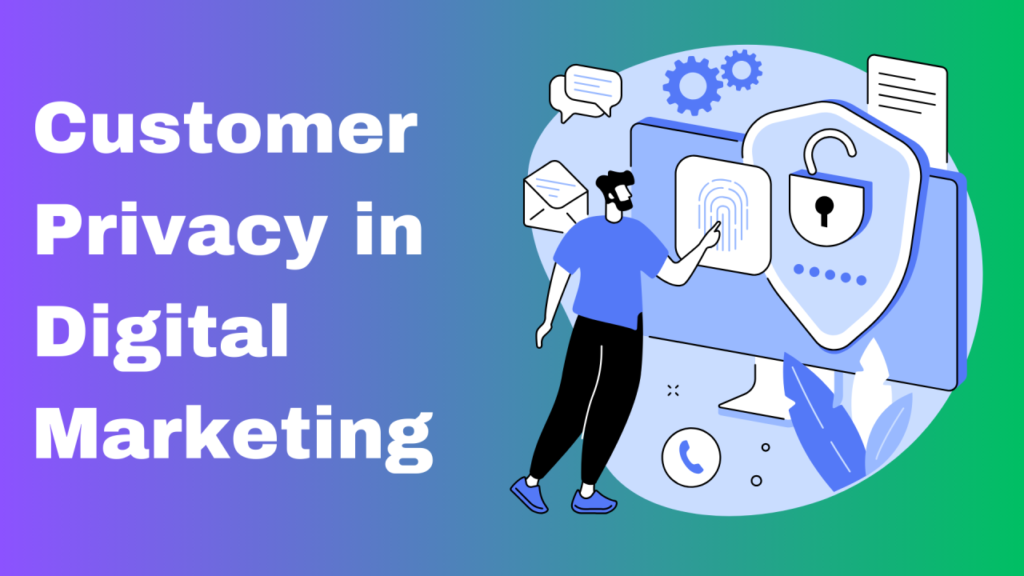Data is considered the new oil. For businesses, especially in digital marketing , consumer data is an invaluable resource that helps create targeted campaigns, enhance customer experiences, and ultimately drive sales. However, with great power comes great responsibility. As the dependence on data grows, so does the need to protect it. Data privacy is no longer just a compliance requirement—it has become a core aspect of digital marketing ethics and strategy

Why Data Privacy Matters in Digital Marketing
Consumers interact with brands through websites, social media, apps, and emails, often leaving behind digital footprints. Marketers use this data to track behaviors, preferences, and purchasing habits. While this helps in delivering personalized content and offers, it also raises serious concerns about how personal information is collected, stored, and used.
Data privacy matters because it’s about protecting an individual’s right to control their personal information. When users share data, they expect it to be handled responsibly. Misuse or mishandling of data not only leads to loss of customer trust but can also result in legal penalties under laws like the General Data Protection Regulation (GDPR) or California Consumer Privacy Act (CCPA).
The Impact of Privacy Laws on Marketing Strategies
Global regulations are getting stricter, forcing marketers to rethink how they collect and use consumer data. These laws ensure that companies:
Obtain explicit consent before collecting personal data
Allow users to access, modify, or delete their dataProvide opt-out options for marketing communications
For digital marketers, this means balancing personalized marketing efforts with respecting user privacy. Relying too much on third-party data or intrusive tracking can backfire and damage a brand’s reputation.
The Shift Towards Ethical Data Collection
The growing focus on data privacy is changing the marketing landscape. Brands are moving towards ethical data collection , focusing more on
First-party data: Gathering data directly from customers with consent through surveys, sign-ups, and loyalty programs.
Zero-party data: : Information that customers willingly share, like preferences or purchase intentions.
Transparent policies: : Clearly explaining what data is being collected and how it will be used.
By building trust, companies can foster stronger customer relationships and loyalty.
How Privacy Impacts Personalization
One of the biggest challenges for marketers is how to maintain the level of personalization that consumers expect while respecting their privacy. The key lies in permission-based marketing, , where users are fully aware and in control of the data they share.
Instead of aggressive retargeting or using third-party cookies, brands are exploring AI-driven contextual targeting—delivering ads based on the content a user is currently engaging with, without tracking personal data.
Building Trust: The Ultimate Marketing Advantage
In the long run, prioritizing data privacy isn’t just about avoiding fines or penalties; it’s about building trust. Consumers are more likely to engage with brands they trust with their personal information.
Here are a few ways marketers can build that trust:
Be transparent about data usage
Offer value in exchange for data
Provide easy opt-out options
Keep security systems updated to avoid data breaches
Conclusion
Data privacy is now an inseparable part of Digital Marketing, . In a world where customers are increasingly aware of their data rights, brands that prioritize privacy will stand out. By embracing ethical marketing practices and respecting user data, businesses not only comply with laws but also create loyal, long-term customers.. In a world where customers are increasingly aware of their data rights, brands that prioritize privacy will stand out. By embracing ethical marketing practices and respecting user data, businesses not only comply with laws but also create loyal, long-term customers.




